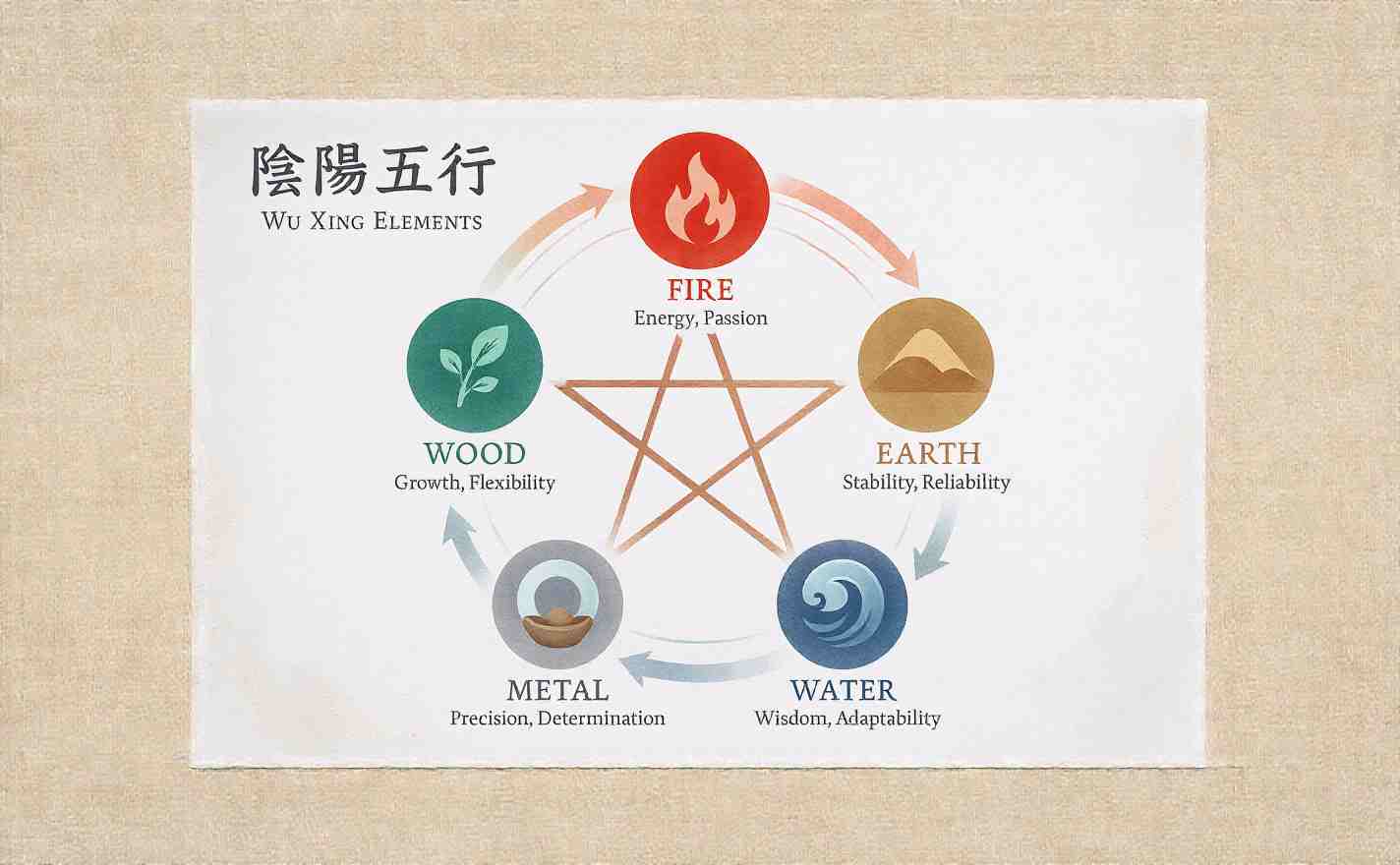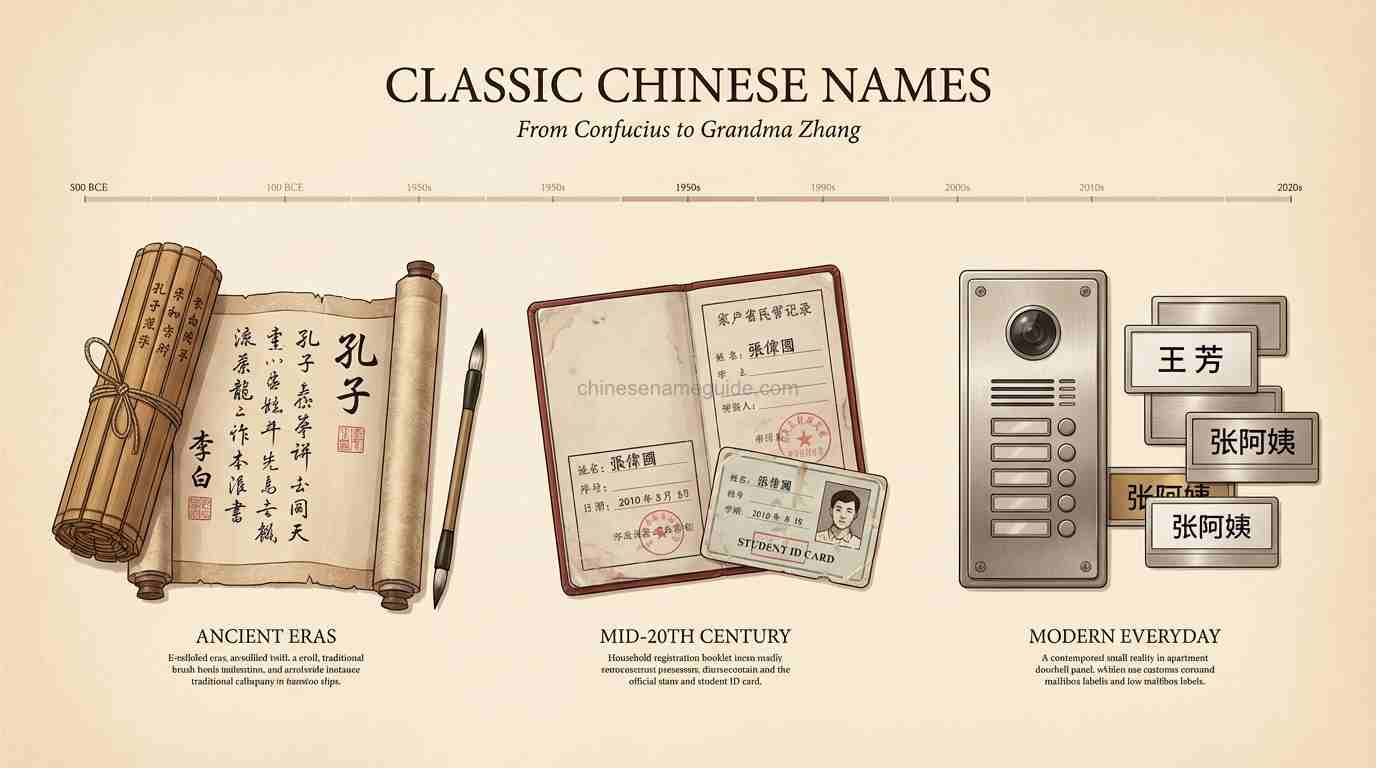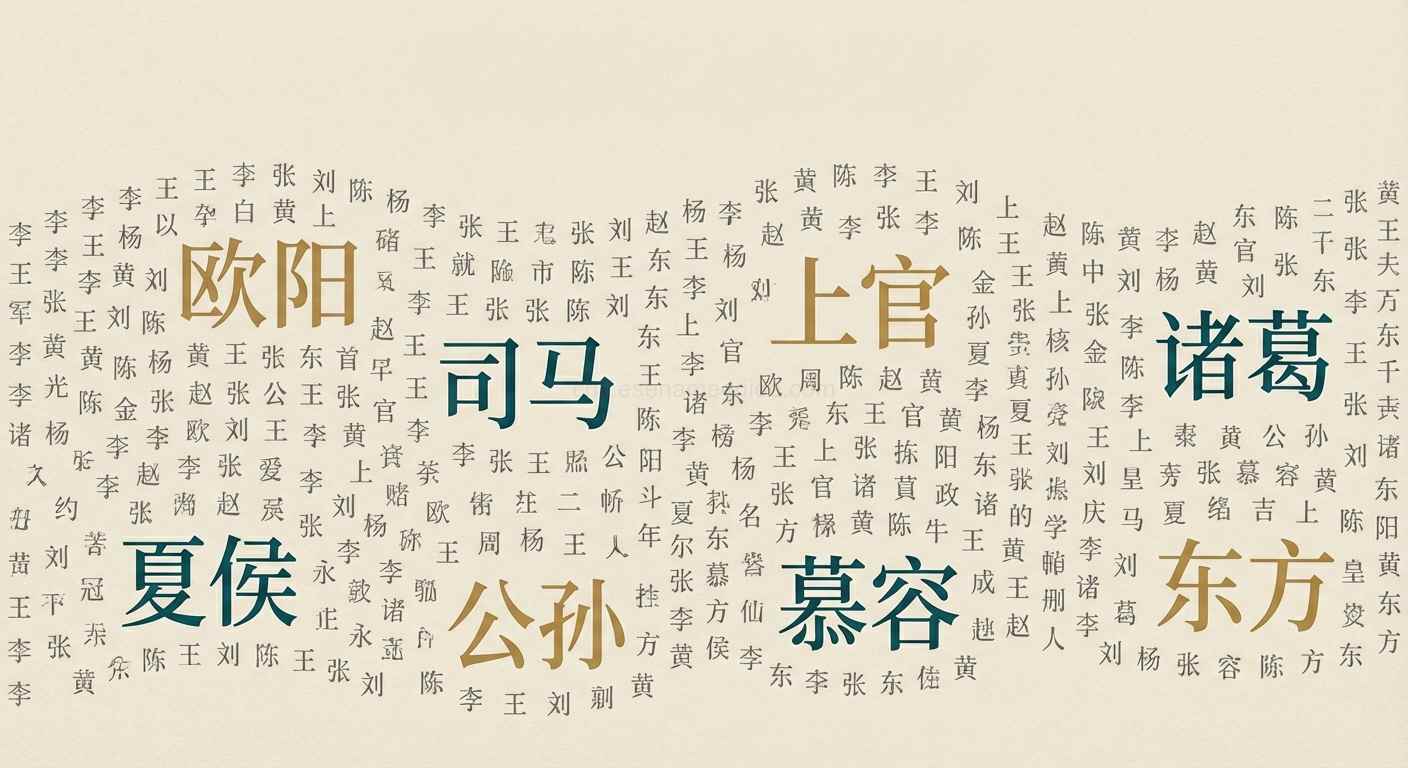
Understanding the Five Elements in Chinese Naming
A comprehensive guide to how Metal, Wood, Water, Fire, and Earth influence Chinese name selection and their cultural significance.
The Five Elements theory (五行, Wǔ Xíng) forms one of the most fundamental concepts in Chinese philosophy and plays a crucial role in traditional Chinese naming practices. This ancient system provides a framework for understanding the natural world and human characteristics, making it an essential consideration for anyone seeking to understand or create authentic Chinese names.
The Foundation of Five Elements Theory
Historical Origins
The Five Elements theory emerged during the Warring States period (7th century to 221 BCE) and was systematized by philosophers like Zou Yan. This cosmological concept became deeply integrated into Chinese medicine, feng shui, astrology, and naming traditions.
The Five Elements Explained
Each element represents specific qualities, directions, seasons, and characteristics:
木 (Mù) - Wood
- Season: Spring
- Direction: East
- Characteristics: Growth, flexibility, creativity, kindness
- Personality Traits: Compassionate, artistic, adaptable, nurturing
- Career Associations: Education, arts, healthcare, environmental work
火 (Huǒ) - Fire
- Season: Summer
- Direction: South
- Characteristics: Energy, passion, leadership, intelligence
- Personality Traits: Charismatic, enthusiastic, confident, expressive
- Career Associations: Entertainment, politics, sales, public speaking
土 (Tǔ) - Earth
- Season: Late Summer
- Direction: Center
- Characteristics: Stability, reliability, practicality, honesty
- Personality Traits: Trustworthy, methodical, patient, supportive
- Career Associations: Agriculture, construction, finance, administration
金 (Jīn) - Metal
- Season: Autumn
- Direction: West
- Characteristics: Precision, determination, justice, clarity
- Personality Traits: Organized, disciplined, analytical, principled
- Career Associations: Law, engineering, military, technology
水 (Shuǐ) - Water
- Season: Winter
- Direction: North
- Characteristics: Wisdom, intuition, adaptability, depth
- Personality Traits: Reflective, intelligent, flexible, mysterious
- Career Associations: Research, philosophy, psychology, spirituality
Element Interactions and Balance
The Generative Cycle (相生, Xiāng Shēng)
Elements support and nourish each other in a continuous cycle:
- Wood feeds Fire (木生火) - Wood burns to create fire
- Fire creates Earth (火生土) - Fire produces ash/earth
- Earth bears Metal (土生金) - Earth contains metal ores
- Metal collects Water (金生水) - Metal surfaces collect condensation
- Water nourishes Wood (水生木) - Water helps plants grow
The Destructive Cycle (相克, Xiāng Kè)
Elements can also overcome or control each other:
- Wood depletes Earth (木克土) - Trees absorb earth nutrients
- Earth absorbs Water (土克水) - Earth soaks up water
- Water extinguishes Fire (水克火) - Water puts out fire
- Fire melts Metal (火克金) - Fire can melt metal
- Metal cuts Wood (金克木) - Metal tools cut wood
Applying Five Elements in Chinese Naming
Birth Chart Analysis
Traditional Chinese naming considers the birth date and time to determine:
- Dominant elements in the person's chart
- Missing or weak elements that need strengthening
- Excessive elements that require balancing
- Optimal element combinations for harmony
Character Selection Based on Elements
Wood Element Characters (木字旁)
Common radicals and characters:
- 林 (Lín) - Forest
- 森 (Sēn) - Dense forest
- 桂 (Guì) - Osmanthus tree
- 梅 (Méi) - Plum blossom
- 柳 (Liǔ) - Willow
Fire Element Characters (火字旁)
- 炎 (Yán) - Flame
- 灿 (Càn) - Brilliant
- 烨 (Yè) - Bright
- 焕 (Huàn) - Shining
- 煜 (Yù) - Bright light
Earth Element Characters (土字旁)
- 坤 (Kūn) - Earth (feminine)
- 培 (Péi) - Cultivate
- 城 (Chéng) - City
- 墨 (Mò) - Ink
- 堂 (Táng) - Hall
Metal Element Characters (金字旁)
- 钢 (Gāng) - Steel
- 铭 (Míng) - Inscription
- 锐 (Ruì) - Sharp
- 银 (Yín) - Silver
- 铸 (Zhù) - Cast
Water Element Characters (水字旁)
- 海 (Hǎi) - Ocean
- 河 (Hé) - River
- 泽 (Zé) - Marsh
- 润 (Rùn) - Moist
- 清 (Qīng) - Clear
Practical Naming Strategies
Strengthening Weak Elements
If a person's birth chart shows weakness in certain elements:
- Add supporting characters from the needed element
- Use generative cycle characters that produce the weak element
- Avoid destructive cycle characters that might weaken further
Balancing Excessive Elements
For overly strong elements in a birth chart:
- Include controlling elements to create balance
- Use neutral characters that don't amplify the excess
- Consider seasonal adjustments based on birth timing
Creating Harmonious Combinations
Successful Five Elements naming considers:
- Element compatibility between surname and given name
- Stroke count harmony according to numerological principles
- Phonetic balance for pleasant pronunciation
- Cultural appropriateness for the family's background
Modern Applications and Considerations
Contemporary Relevance
While rooted in ancient philosophy, Five Elements naming remains popular because:
- Cultural continuity connects modern families to traditions
- Psychological comfort provides sense of cosmic harmony
- Practical framework offers systematic approach to name selection
- Artistic inspiration creates meaningful character combinations
Scientific Perspective
Modern practitioners often view Five Elements as:
- Symbolic system rather than literal truth
- Cultural framework for understanding personality types
- Artistic tradition for creating meaningful names
- Psychological tool for self-reflection and growth
Integration with Other Factors
Contemporary Chinese naming typically combines Five Elements with:
- Phonetic considerations for pronunciation and flow
- Character meanings for positive associations
- Family traditions and generational naming patterns
- Modern preferences for simplicity and international usability
Case Studies: Five Elements in Practice
Example 1: Balancing a Fire-Dominant Chart
Situation: Child born in summer with strong Fire element Strategy: Add Water and Earth elements for balance Name suggestion: 泽坤 (Zé Kūn) - "Marsh Earth" Reasoning: Water controls Fire, Earth is nourished by Fire
Example 2: Strengthening Weak Metal
Situation: Birth chart shows weak Metal element Strategy: Add Earth (generates Metal) and Metal characters Name suggestion: 培钢 (Péi Gāng) - "Cultivated Steel" Reasoning: Earth generates Metal, strengthening the weak element
Example 3: Harmonious Wood-Water Combination
Situation: Seeking growth and wisdom combination Strategy: Use Water-Wood generative relationship Name suggestion: 润林 (Rùn Lín) - "Nourished Forest" Reasoning: Water nourishes Wood, creating growth potential
Conclusion
The Five Elements theory provides a sophisticated framework for understanding Chinese naming traditions and creating meaningful names that reflect both personal characteristics and cosmic harmony. While modern applications may be more flexible than traditional practices, the underlying principles continue to offer valuable insights into Chinese cultural values and naming aesthetics.
For those exploring Chinese names, understanding the Five Elements adds depth and authenticity to the naming process, connecting individual identity to the broader patterns of natural harmony that have guided Chinese thought for millennia.
Whether used as a primary naming strategy or as one consideration among many, the Five Elements theory enriches our appreciation of the thoughtfulness and cultural depth inherent in Chinese naming traditions.
Related Articles

What Counts as a *Classic* Chinese Name? From Confucius to Grandma Zhang
When people say “classic Chinese names”, they might picture Confucius, Li Bai… or Auntie Wang downstairs. This guide unpacks what ‘classic’ really means, how traditional names were built, and how to create a name with an old-school Chinese feel today.

Beyond Li and Wang: The Hidden World of Chinese Compound Surnames (复姓)
Most Chinese surnames are a single character, but a small group of multi-character ‘compound surnames’ preserve traces of ancient titles, clans, and borderland tribes. This guide explains what 复姓 are, where they came from, and what they signal in modern Chinese.

When Your Name Sounds Wrong: Tone, Rhythm, and Ping-Ze in Chinese Names
Meaning isn’t everything. This guide shows how tones, rhythm, and classical ping–ze patterns quietly shape what counts as a ‘good-sounding’ Chinese name—and how non-native speakers can avoid clunky, tongue-twister names.